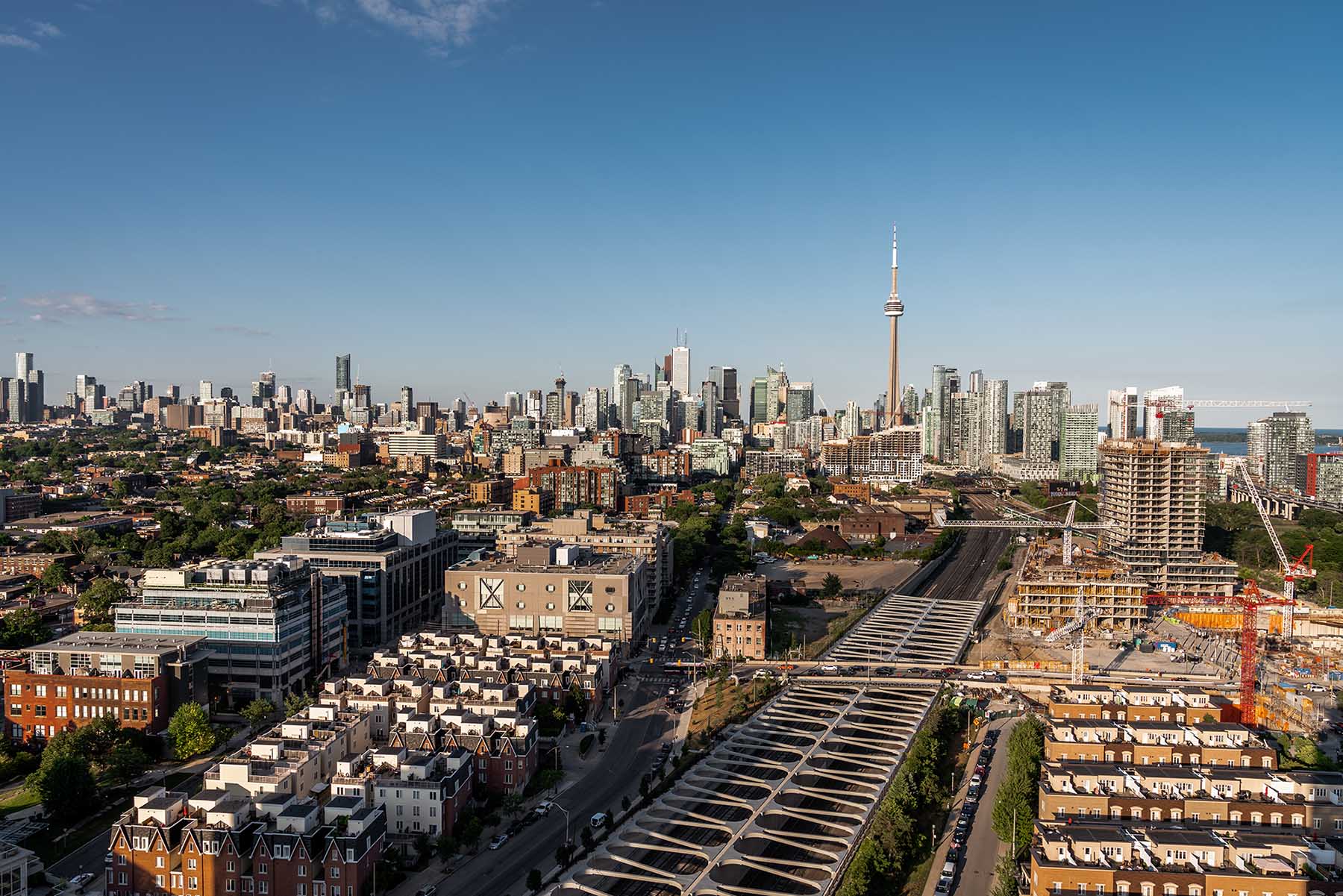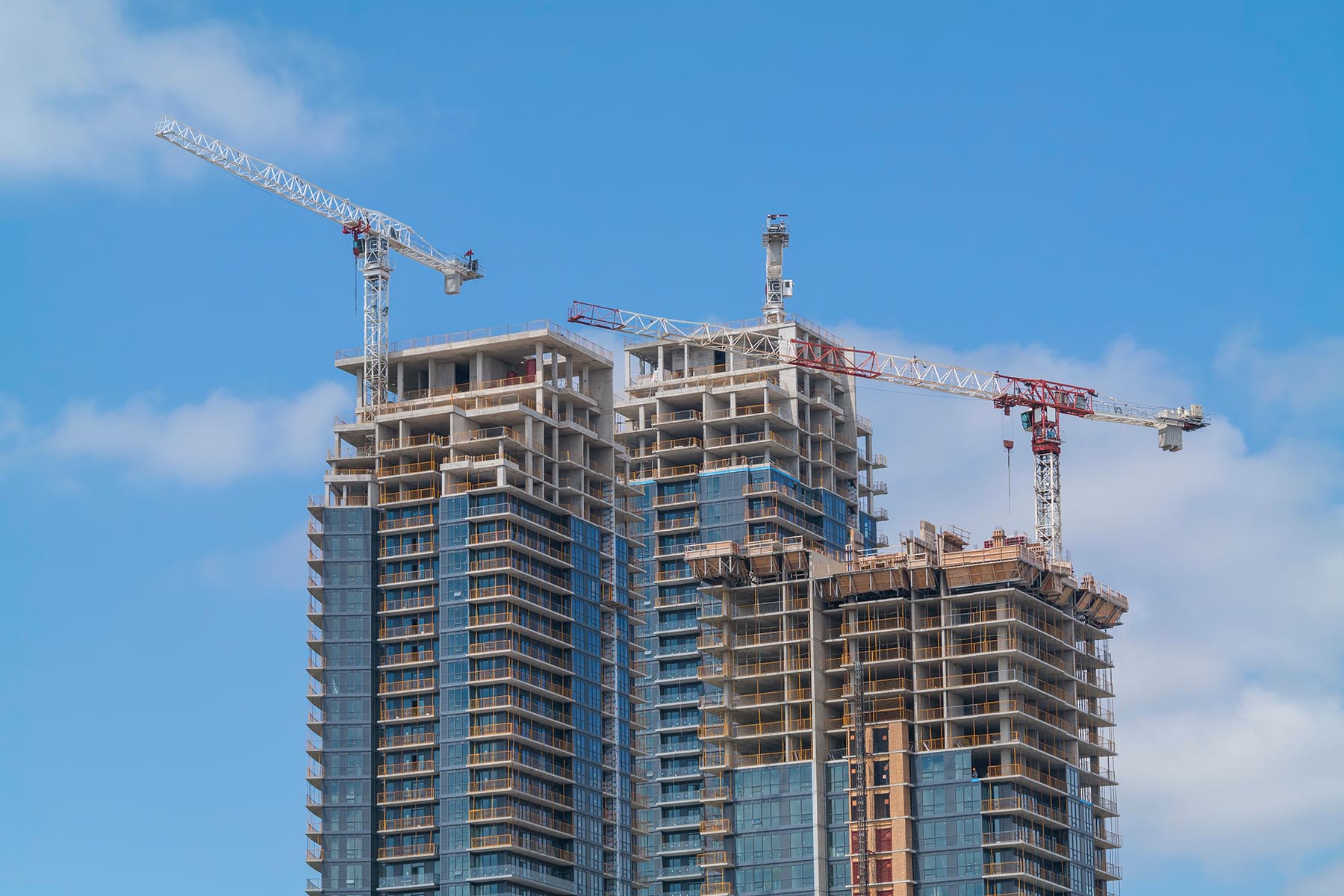

Close


Photo: Simon S. Mass, The Condo Store
With the first round of project launches underway across the Greater Toronto Area, the typically busy new construction spring market is just weeks away.
The 2021 market ranked as the second-best year for new home sales on record, recording 46,651 properties sold between January and December according to data from the Building Industry and Land Development Association (BILD).
However, December 2021 reported the lowest level of remaining new home inventory on record with 2.3 months worth. This shortage, coupled with a looming interest rate hike and rising construction costs, will likely play a role in how the 2022 spring market performs in the GTA.
Simon S. Mass, CEO of The Condo Store (TCS), shared his predictions with Livabl on what trends and events could define the new construction spring market this year.
Simon S. Mass: I am watching for the government reports and committee findings on how to speed up development in order to provide the requisite amount of housing for the GTA. While that won’t be something to be talked about this spring, it’s an important topic that can affect the entire real estate industry. We are predicting an even bigger year in the pre-construction sector, as the demand is much stronger than the supply at this time.
SM: We are continuing to monitor the west end of Toronto. We wrote about it in a report to our clients, but there is major development happening. Areas like The Junction, The Queensway and The Stockyards are only going to get more popular, which creates a situation where value can be created.

Photo: Tyler / Adobe Stock
SM: Anything that impacts borrowing will affect the real estate market. However, the amount and pace of any significant impact will be muted. We won’t see a wave of mortgage defaults, first off. The rates won’t rise so quickly that it will cause immediate issues. I believe that the stress test has been doing its job and mortgages can withstand some rate increases without any negative impact.
The type of investor or owner that we have as clients will not concern themselves with the rate increases as the need for a mortgage is typically four to six years down the road, and we preach to our clients — or anyone we are talking to — that in the pre-construction sector, the main priority is equity gains on your properties. Then, you can round out your pro formas with rental rates and mortgage payments, etc. Focus on the long-term capital appreciation and gains.
In saying that, you might see a spike in sales for pre-construction, even though it’s a robust sector already. The fact that interest rates will increase could drive some real estate owners and investors to the pre-construction side to avoid requiring a mortgage within a few months from the time of purchase.
SM: It’s a clear tug-of-war as developers want to bring as many units to the market as there is demand, but they want to make sure that they understand their true costs which could require some delays or further thought. This creates a difficult situation that we hope is cleared up in the near future. The last thing you want to see is any increase in the supply costs being passed on to the buyer. In the end, whichever force can overcome the other in the demand versus rising construction cost match will win out and the market will adjust like every free market does.

Photo: alex-virt / Adobe Stock
SM: Everyone who wants to buy a condo will buy a condo. I don’t think online sales centres or any other restrictive measures will deter anyone anymore, not after these two years where we see everyone adapting fairly seamlessly in regards to large-ticket item purchases being done virtually. I don’t know if sales teams and developers were ready in spring of 2020, but they certainly had to adapt and can handle it now in early 2022, or else they probably aren’t around to worry about it.
SM: Rates will have a say in this, but most forecasts, along with the independent research we conduct at TCS, says that growth will continue normally through 2022 into 2023. But be ready for more of an “irregular” schedule as people have adapted to winter launches and other situations that may have once been limited.
Again, as I said earlier, the interest rates as well as construction costs both will have a big role in determining how this year goes. However, in the case of pre-construction real estate in Toronto, it appears that we’ll have more people interested this year with a standard amount of supply and launches.




